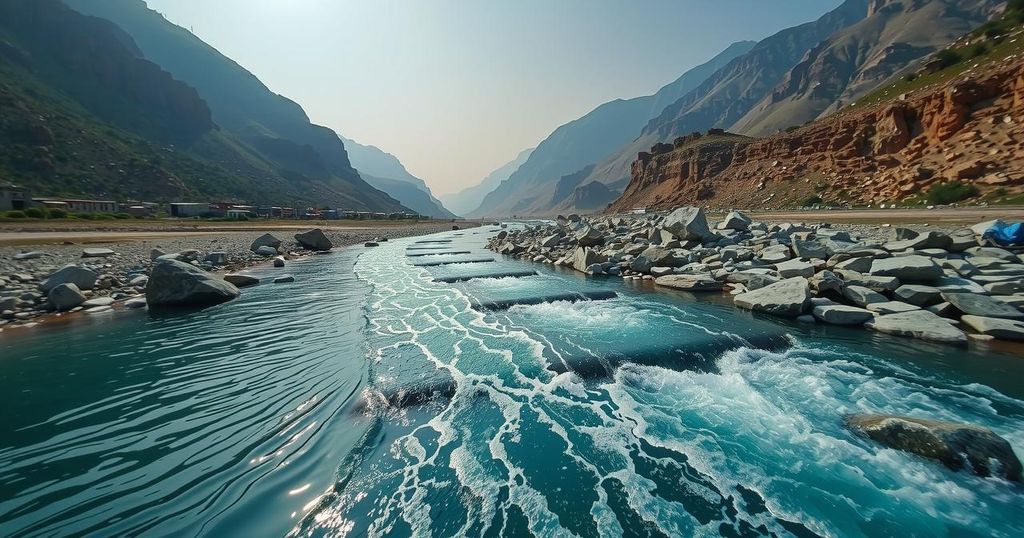Uzbekistan’s Envoy Affirms Afghanistan’s Water Rights from Amu River
The Afghan population has the right to access the Amu Darya River, according to Uzbekistan’s envoy. Discussions are ongoing regarding water allocations, particularly in the context of the Qosh Tepa Canal, which aims to enhance Afghanistan’s water supply for agricultural use. However, concerns about the impact on Uzbekistan’s water balance persist.
Uzbekistan’s envoy regarding Afghanistan, Ismatullah Irgashev, reaffirmed that the Afghan population holds the right to access water from the Amu Darya River. He clarified that there is no conflict between Uzbekistan and the Islamic Emirate of Afghanistan (IEA) over this matter, stating that the only consideration is determining the allocation of water resources between the two nations. Irgashev noted that Uzbekistan has established a cooperative commission with Afghanistan to facilitate discussions on the Qosh Tepa Canal project, which plans to utilize water from the Amu River. The Qosh Tepa Canal is projected to extend 285 kilometers, with a width of 100 meters and a depth of 8.5 meters, transporting water from the Amu River in Balkh province through Jowzjan to Faryab. It is anticipated to divert approximately 10 cubic kilometers of water annually, representing about 20% of the river’s total flow. However, Uzbek authorities have voiced concerns that this canal could significantly impact the regional water balance in Central Asia. Conversely, the IEA has assured that Uzbekistan will not suffer any adverse effects from the canal’s construction.
The tension surrounding water rights in Central Asia has historical roots, heavily influenced by the region’s climatic conditions and the geographic distribution of water resources. The Amu Darya River is a pivotal water source for both Uzbekistan and Afghanistan, making its management a critical issue for both sides. The Qosh Tepa Canal represents a monumental infrastructure project aiming to enhance agricultural output in Afghanistan while simultaneously drawing scrutiny over its environmental and hydrological impacts. The discussions on water rights and usage highlight broader regional cooperation and potential conflicts driven by competing national interests.
Uzbekistan acknowledges Afghanistan’s right to utilize the Amu Darya River’s water, which underscores the need for collaborative resource management in the region. The proposed Qosh Tepa Canal stands as a significant step for Afghanistan’s development but also raises important questions about water distribution that must be systematically addressed to maintain good bilateral relations. Moving forward, continued dialogue will be essential in balancing the water needs of both nations to avert conflicts and foster mutual benefit.
Original Source: www.ariananews.af




Post Comment